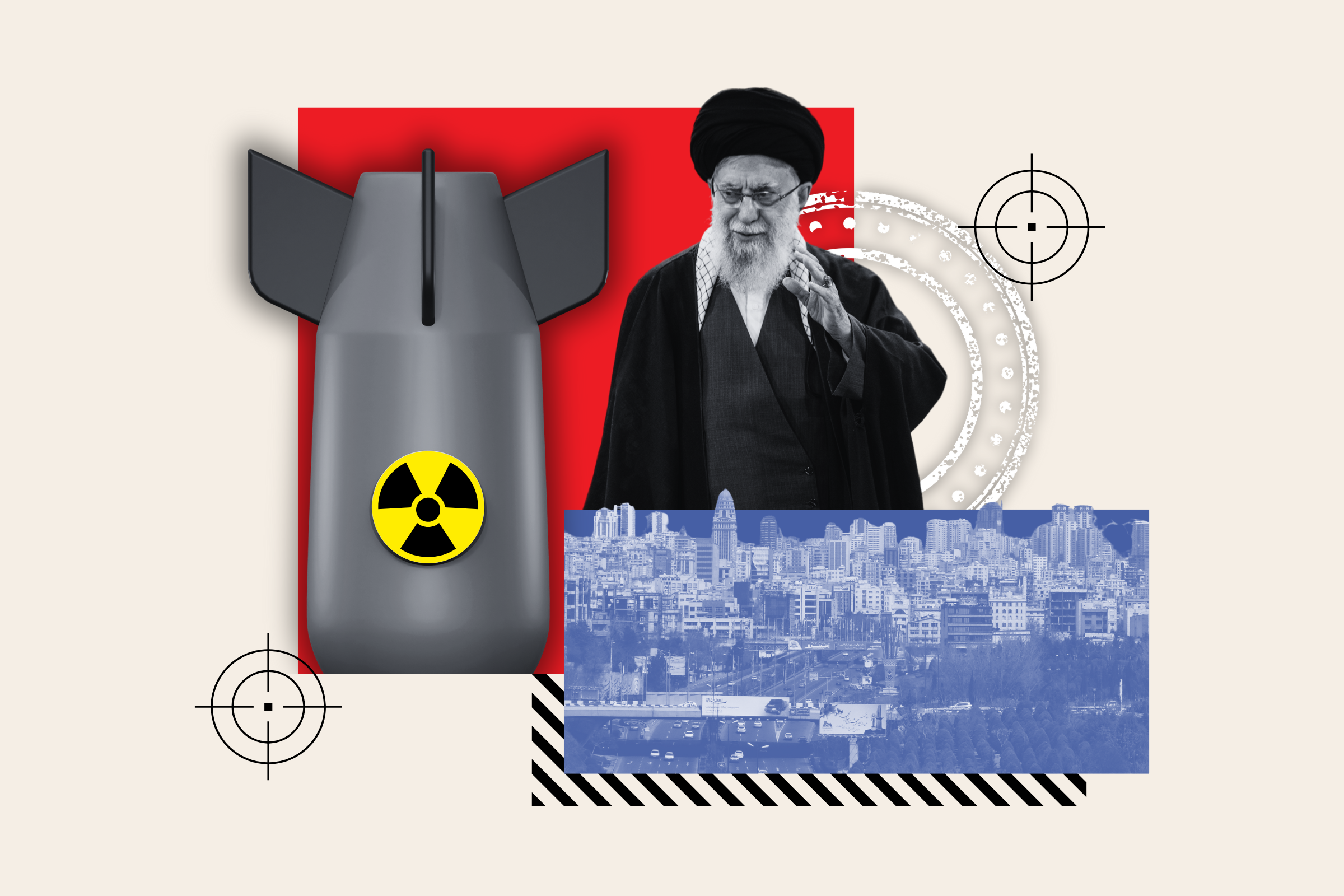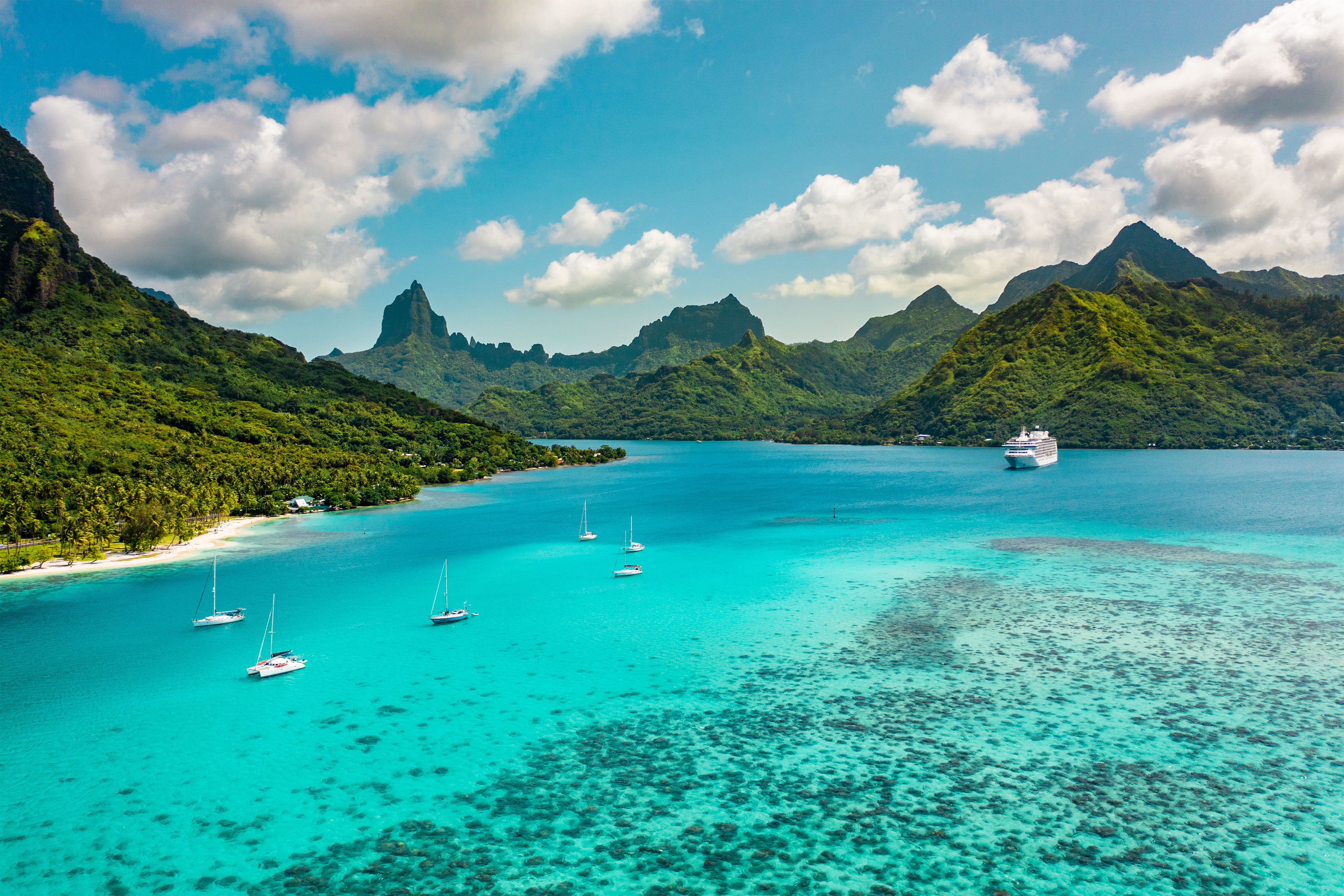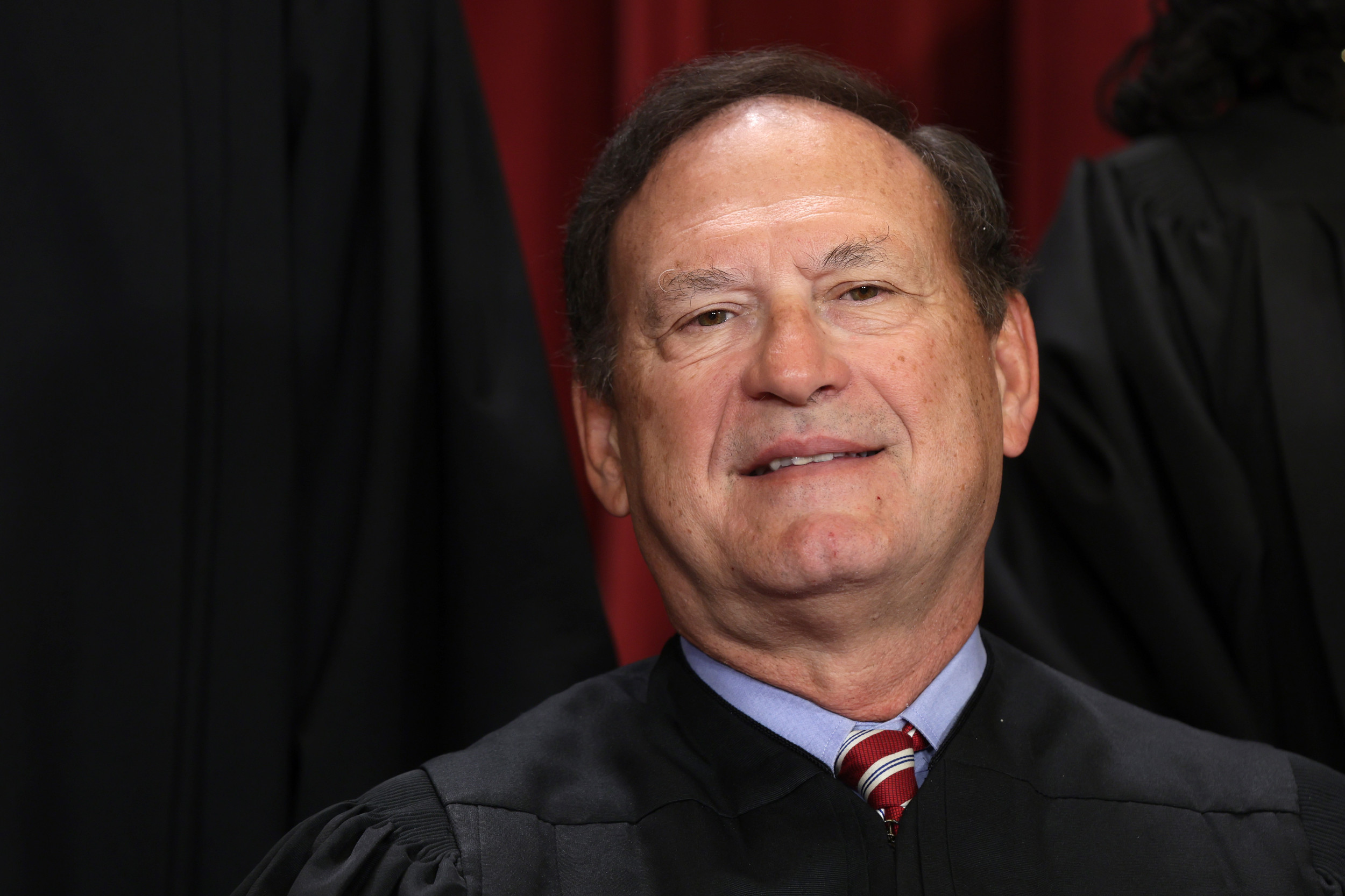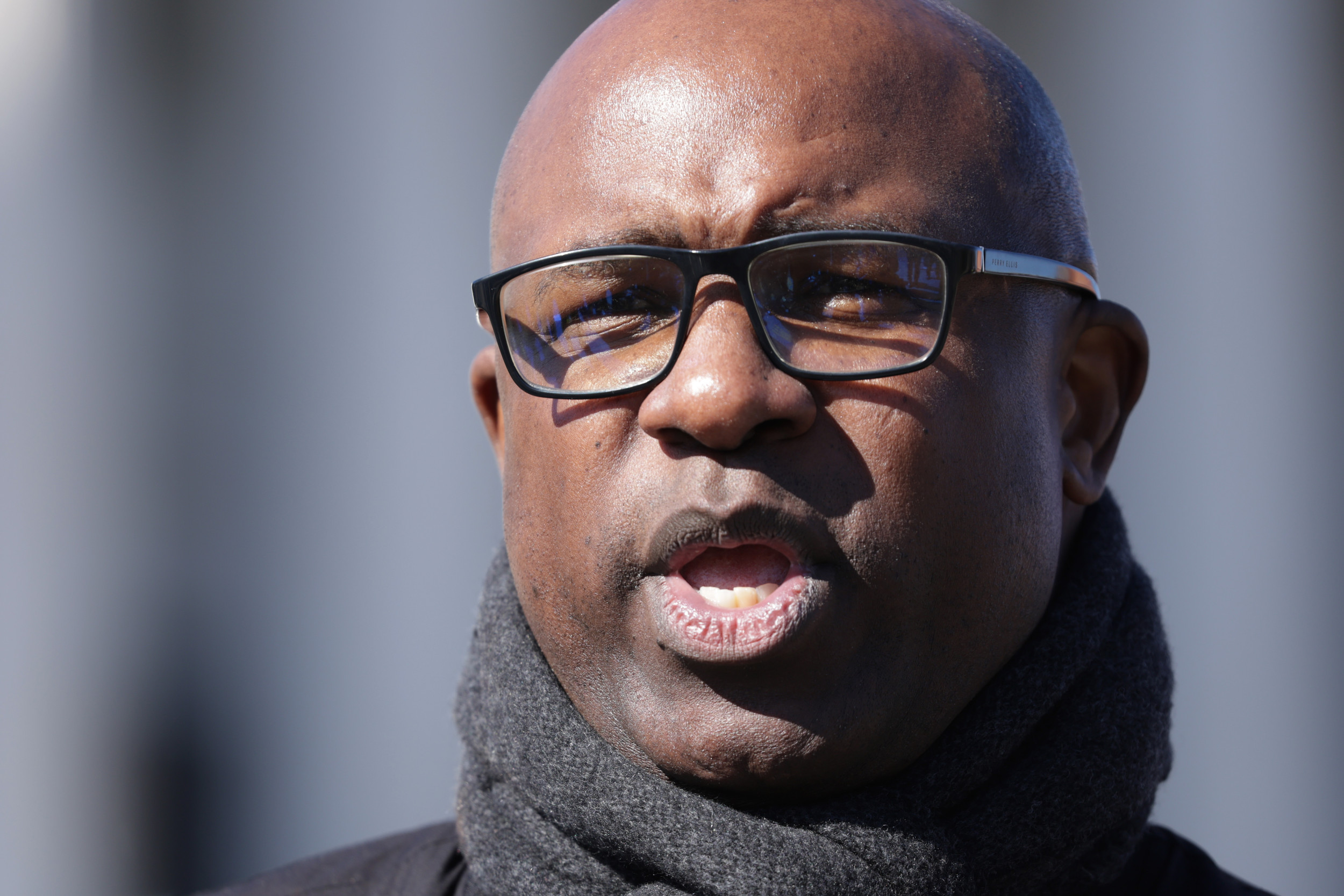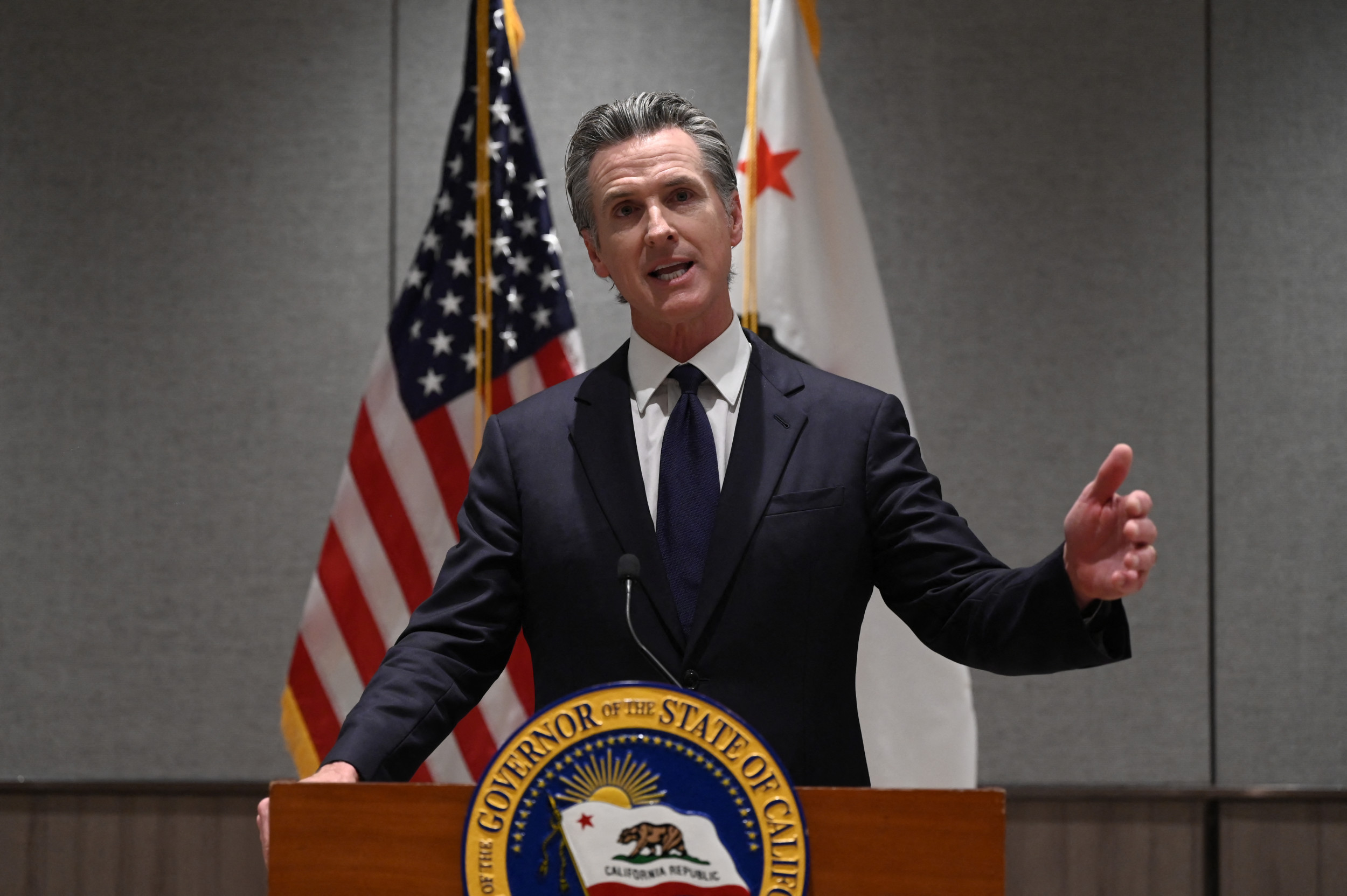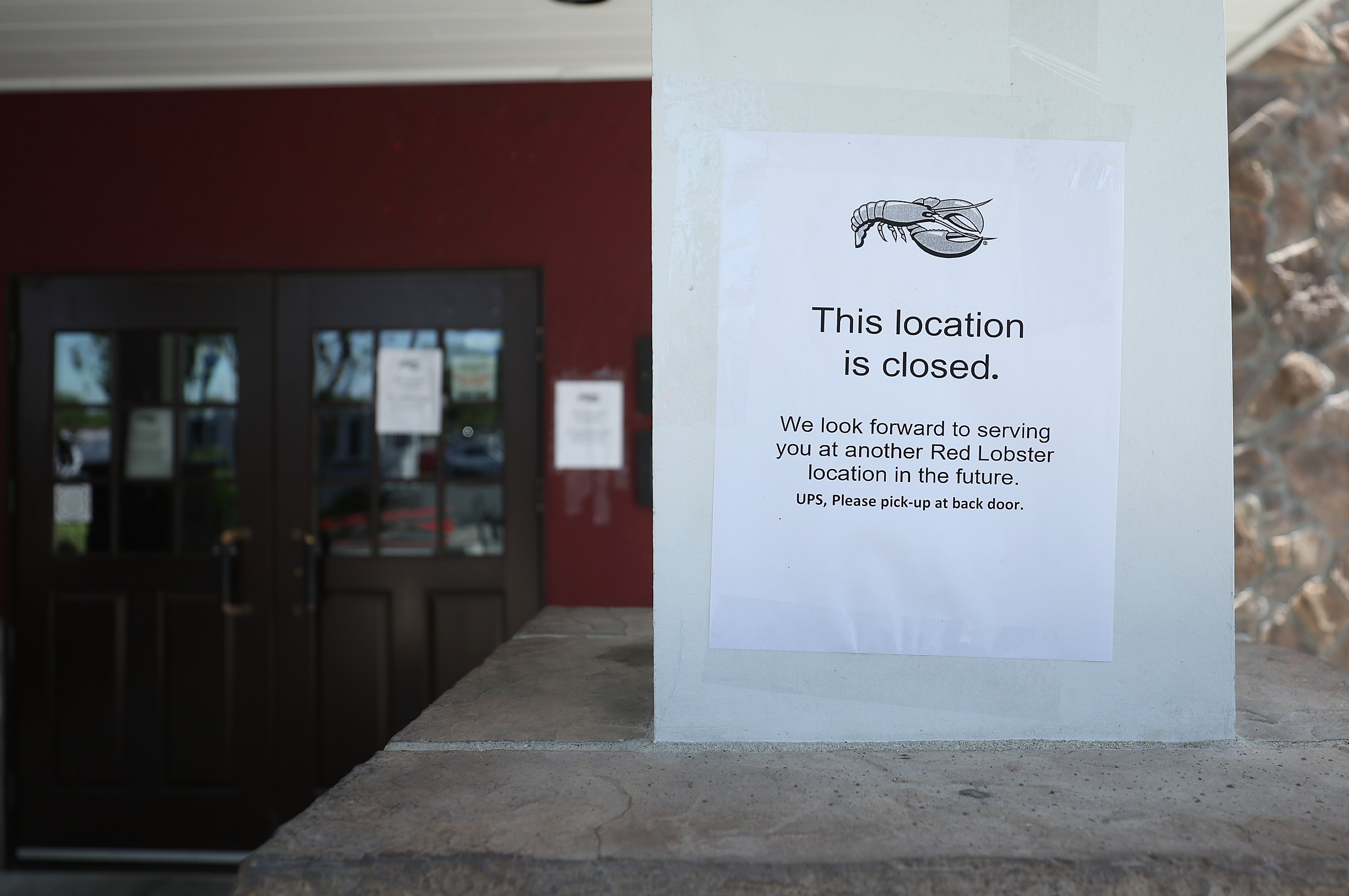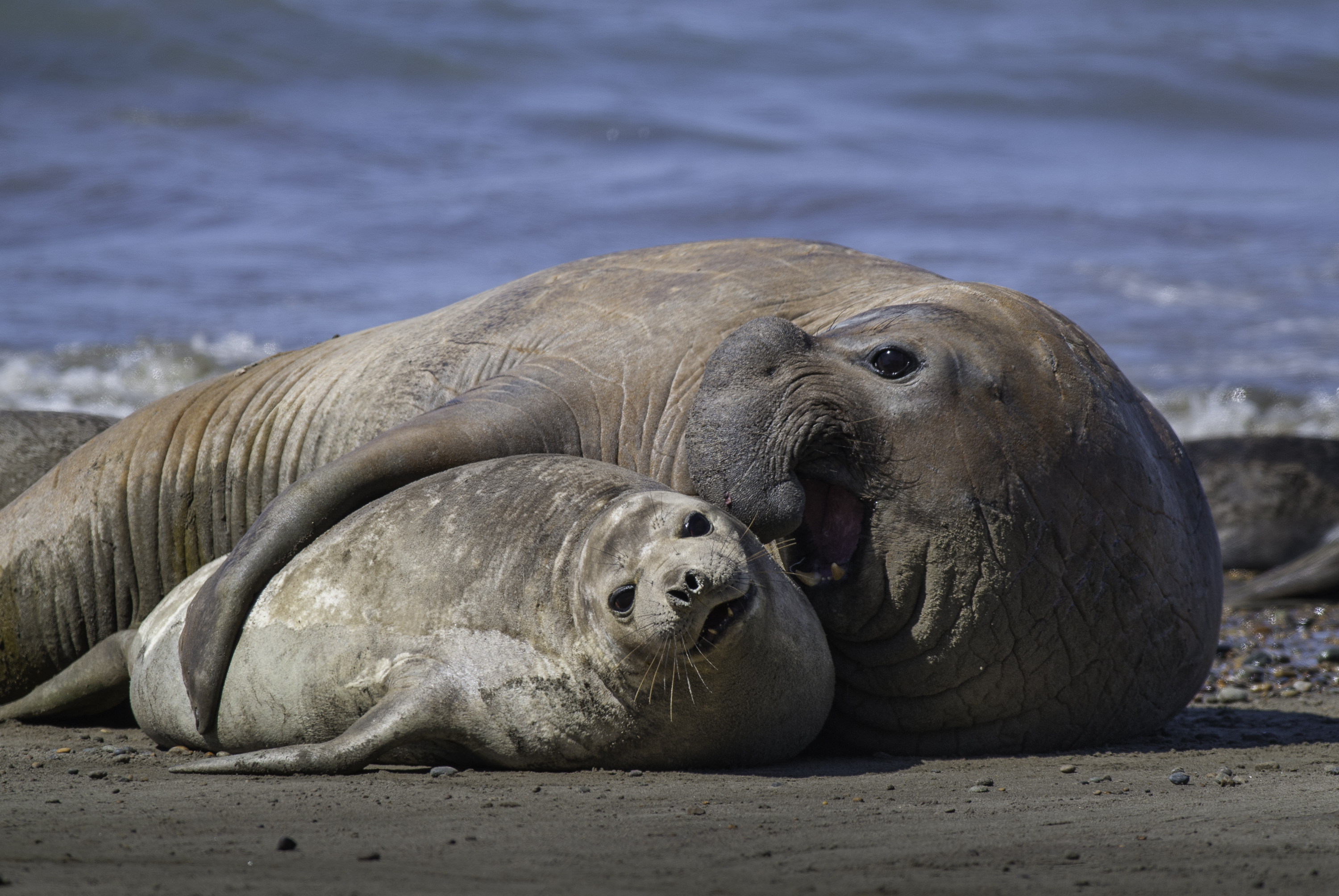2 MIN READ
2 MIN READ
3 MIN READ
2 MIN READ
The Daily Debate
Has the Trump Conviction Set Up a Dangerous Precedent for Prosecuting Presidents?
Top Stories
The president was asked if he would pardon his son if he's found guilty of criminal gun charges.
1 MIN READ

Welcome to the Bulletin,
- Gaza school hit in strike: An Israeli strike early Thursday on a school sheltering displaced Palestinians in central Gaza killed more than 30 people, including 23 women and children, according to local health officials. The Israeli military said Hamas militants were operating from within the school.
- Tornado rips into Maryland: Multiple residents were injured during severe storms on Wednesday night when a tornado struck just north of Washington, D.C. Here's the latest forecast.
- Alito's flag dispute: A former neighbor of Supreme Court Justice Samuel Alito told CNN that his account of a neighborhood dispute that led to the hoisting of an upside-down U.S. flag on his property didn't add up. Here's why he said Alito is "outright lying."
- Energy drink warning: Researchers at the Mayo Clinic have warned that drinking energy drinks, which often contain high amounts of caffeine and other stimulating ingredients, can be dangerous for people with genetic heart diseases and have been linked to sudden cardiac arrest. Find out more.
- In the ongoing war in Ukraine, total Russian equipment losses in Ukraine have surpassed $60 billion, according to one estimate, with a few of Russia's most valuable systems and platforms packing a bigger punch than others. Here are the most revealing losses.
TL/DR: “It would be unconstitutional not only for a state to imprison a President, but also for a state to impose such restrictions, on travel, for example, that would substantially hinder him in carrying out his job as President,” said Michael Dimino.
Imprisoning Donald Trump would create a massive constitutional crisis, legal experts have said.
Why it matters: With Trump facing 34 counts, including falsifying records, legal experts like Greg Germain and Michael Dimino doubt he will receive prison time. Germain warns of a "constitutional crisis and a slew of appeals and habeas corpus challenges, and a mess for the judicial system in trying to deal with prisoner Trump.
Read more in-depth coverage:
Donald Trump's Conviction Was Meant to Sink Him in the Polls. It Hasn't
What happens now? Trump is due to be sentenced on July 11 after he was convicted of all counts in his hush money trial in New York. Germain suggests alternatives like giving him probation or staying his sentence pending appeal. Dimino said it would be “unconstitutional not only for a state to imprison a President, but also for a state to impose such restrictions, on travel, for example, that would substantially hinder him in carrying out his job as President.”
TL/DR: Senate Majority Leader Chuck Schumer—who changed his "yes" vote to a "no" in a last-second procedural move that allows the bill to be voted on again, said in a statement that "Senate Republicans showed us who they are today."
With a vote of 51-39, Senate Republicans voted Wednesday to block a bill that would have guaranteed access to contraceptives nationwide.
Why it matters: The Right to Contraception Act aimed to establish a legal guarantee for individuals to use contraceptives and to safeguard healthcare providers' rights to distribute them. The legislation failed to achieve the 60 votes required for a full Senate vote, with all opposition coming from Republicans. A total of 51 senators voted in favor of the bill, all of whom were Democrats and independents, except moderate Republican Senators Lisa Murkowski of Alaska and Susan Collins of Maine.
Read more in-depth coverage:
From the Archive: J.D. Vance Confronted on Republicans' Push to Block Birth Control
What happens now? With two years having passed since the Supreme Court overturned Roe v. Wade, some Democrats are hopeful that this vote will remind voters of the GOP's restrictive positions on abortion. They believe it could influence voters to prevent the GOP from extending its narrow control of the Senate this fall, fearing further restrictions.
TL/DR: NATO military chiefs have sounded an alarm about a future conflict between the alliance and Russia.
NATO is quickly moving pieces into place to rush U.S. forces toward Eastern Europe should a wider war with Russia break out on the continent.
Why it matters: The Daily Telegraph recently reported that NATO was carving out several new "land corridors" designed to speed up the transport of U.S. troops and supplies through numerous European countries toward hypothetical front lines on the alliance's eastern flank. NATO alarm bells have increasingly sounded about the possibility of a direct conflict with Russia after more than two years of war in Ukraine. Kyiv has warned that should Moscow triumph over the country, Russia will set its eyes elsewhere in Europe.
Read more in-depth coverage:
Putin Issues Rare Statement on Ukraine War Losses
What happens now? The new plans focus on easing the movement of U.S. troops into different theaters, likely designed to work alongside local defensive efforts, said Davis Ellison, an analyst with the Hague Center for Strategic Studies and a former strategist with NATO's Allied Command Transformation. Routes will snake through Italy, Turkey, Greece, and other areas.
TL/DR: Some 41% of Americans say money matters have "destroyed" their mental health and nearly two-thirds are suffering "financial fatigue."
Financial insecurity is deteriorating Americans' mental health, according to a recent study by MarketWatch Guides shared exclusively with Newsweek.
Why it matters: Even though inflation has eased considerably compared to its June 2022 peak, nearly half (47 percent) of respondents said that 2024 has been the most stressful year of their lives money-wise. But what exactly is stressing Americans out? Some 57 percent said the cause was the high price of essential goods; 47 percent pointed to their lack of savings, and 46 percent to their lack of income. Meanwhile, 37 percent blamed their debt and 39 percent the performance of the U.S. economy. Some 36 percent said that the high cost of housing was causing them stress, while 33 percent pointed to high interest rates.
Read more in-depth coverage:
Biden's Brand Suffers From 'Back in the Day' Economics, Inflation's Reality
What happens now? Economic problems remain high on the list of concerns troubling Americans ahead of the November presidential election. In its latest survey, Gallup found that 36 percent of Americans thought that economic problems were the most important issue facing the country today, with 17 percent worrying about the state of the U.S. economy in general and 12 percent about the high cost of living.
TL/DR: Extreme turbulence events are rare, especially ones that result in death or severe injury to passengers.
On May 21, a Singapore Airlines Boeing 777 from London to Singapore experienced severe turbulence, killing one man and injuring several others. The incident drew global headlines, raising concerns about airline safety and the potential growing threat of turbulence to aviation.
Why it matters: Extreme turbulence events are rare, but recent incidents have raised concerns less than two weeks after the deadly Singapore Airlines event, a flight from Doha to Dublin experienced turbulence, injuring 12 people. In March, a LATAM Airlines flight from Sydney to Auckland had severe turbulence, hospitalizing 12. These incidents, in quick succession, have sparked questions about the increasing frequency of severe turbulence.
Read more in-depth coverage:
How Dangerous is Flight Turbulence?
What happens now? Scientists believe climate change is increasing turbulence frequency and fear the problem will get worse. "Our latest future projections indicate a doubling or trebling of severe turbulence in the jet streams in the coming decades, if the climate continues to change as we expect," Paul Williams, a professor of atmospheric science at the University of Reading in the U.K. told Mashable. Experts have stressed the importance of following safety advice while onboard an aircraft.
D-Day Quiz: 8 Questions on the 80th Anniversary
June 6, 2024, marks the 80th anniversary of the D-Day landings, the Allied attack in World War II that began the liberation of Nazi-occupied Europe.
D-Day saw over 150,000 Allied troops landing on the beaches of Normandy, France. The invasion, which remains the largest amphibious assault in history, involved forces from the United States and the United Kingdom, as well as many other Allied nations.
The operation was a critical turning point in World War II, leading to the successful gaining of a foothold in mainland Europe and the eventual defeat of Nazi Germany.
How much do you know about the momentous events of that day? Take our quiz.
The Full STORYTrending
Drinking Water Recall: Full List of Companies With Ongoing Warnings
2 MIN READ
2025 Rivian R1T and R1S Review: Major Changes Under the Surface
6 MIN READ
I Caught My Disabled Daughter's Rapist on Video. His Sentence Was Appalling
10 MIN READ
How Valerie Mack and Shannan Gilbert are connected to Gilgo Beach killings
5 MIN READ
Trump Says Nuclear War Is Bigger Threat Than Climate Change
2 MIN READ
First Black Bear Killing of Human Confirmed in California
2 MIN READ
Aurora-Like Purple Light Show STEVE's Twin Discovered
3 MIN READ
Opinion
The Debate
Russia-Ukraine War
Putin Issues Rare Statement on Ukraine War Losses
1 MIN READ
Russian Officials Voice Rare Criticism of Putin's Economic Policy
2 MIN READ
Crimea Strait Attack a 'Significant Disruption' to Russian Logistics—UK
2 MIN READ
Video Shows Ukraine Drone Find Fatal Gap in Russian 'Turtle Tank's' Armor
2 MIN READ
Russia's Most Valuable Tech Losses in Ukraine Revealed
Electronic warfare equipment, sophisticated surveillance and Black Sea aircraft and ships have put Russia's losses past an estimated $60 billion.
4 MIN READ
Entertainment
50 Cent's Lauren Boebert Photo Takes Internet By Storm
"Lauren Boebert, Colorado Republican making the white house look good," 50 Cent captioned a photo of himself with the politician.
2 MIN READ
My Turn
I feel like I've never belonged anywhere
7 MIN READ
I caught my disabled daughter's rapist on video. His sentence was appalling
10 MIN READ
I'm a pastor—I was afraid to admit my diagnosis
4 MIN READ
I'm a high-stakes parent—we have greater consequences
5 MIN READ
My boyfriend wanted to shoot someone. We must take guns from abusers
He "needed" to watch the light fade from their eyes, and steal their last breath. The Supreme Court needs to act.
4 MIN READ
Life & Trends
Woman Documents New 'Stage' of Relationship With Her Ex, Melts Hearts
Jemma told Newsweek that she is grateful for the situation with her ex, which has seen its way past "ego or pain."
2 MIN READ
Gen Z Woman Needs Place To Live, So Moves In With 5 'Random' Men
3 MIN READ
Woman Tries to Have Relaxing Bubble Bath, Labrador Has Other Ideas
2 MIN READ
Why You Should Think Twice Before Hitting on a Flight Attendant
2 MIN READ
Watch Owner's Hilarious Attempt At Gardening With Golden Retriever
2 MIN READ
Kia's Latest Designs are Setting the Bar High
The Mercedes-Benz Journey Toward Electrification
Kia's Research and Development Breakthroughs Drive Auto Industry Innovation
A Newsweek conference. June 3rd, San Diego. The new era of life sciences.
News & insights delivered daily
See why nearly half million subscribers begin their day with our newsletter.
Sign UpFrench Polynesia: Expanding Its Horizons with the USA
Pushing Education on All Fronts
Israel, the West’s Front Line Against Barbaric Jihad (Feat. MK Dan Illouz)
In this bonus episode, Josh interviews Likud MK Dan Illouz, one of the youngest members of the Israeli legislature and a powerful voice in defense of U.S.-Israel relations and Western civilization.
The Case For Climate Capitalism (Feat. Tom Rand)
Tom Rand joins host Ellis Henican to discuss his book: The Case For Climate Capitalism, Economic Solutions For A Planet In Crises, where he argues that a warming climate and a general distrust of Wall Street has opened a new cultural divide among those who otherwise agree we must mitigate climate risk.

- Newsweek magazine delivered to your door
- Newsweek Voices: Diverse audio opinions
- Enjoy ad-free browsing on Newsweek.com
- Comment on articles
- Newsweek app updates on-the-go

- Newsweek Voices: Diverse audio opinions
- Enjoy ad-free browsing on Newsweek.com
- Comment on articles
- Newsweek app updates on-the-go
top
Fani Willis Blew It, Legal Experts Say
An appeals court in Georgia has paused the case against Trump, pending a ruling on defendants' efforts to disqualify Willis.
2 MIN READ
Energy Drinks Linked to Sudden Cardiac Arrest
Energy drinks, which aren't regulated by the FDA, contain high amounts of caffeine and other stimulating ingredients like taurine.
2 MIN READ
U.S. News
Texas home prices drop as housing market struggles
Home values in certain cities in the state have decreased.
2 MIN READ
World
Zelensky's emotional moment with American D-Day veteran
2 MIN READ
Fact Check: Did Volodymyr Zelensky buy a casino in Cyprus?
3 MIN READ
New high-speed train cuts travel time between Beijing, Hong Kong in half
2 MIN READ
Tom Hanks D-Day warning: "don't let that happen again"
2 MIN READ
Mystery as Russian judge dies after falling from window
Natalia Larina, 50, was found dead outside her apartment block in Moscow six months after she had retired, Russian media reported.
1 MIN READ
Business
Joe Rogan says Americans don't have to work—"Free money"
"Just imagine the entire country just gets a free $200,000 a year," Rogan said on his popular podcast.
3 MIN READ
Tech & Science
New Bird Flu Change Sparks Scientists' Warning: 'Be Alert!'
2 MIN READ
MDMA may still be coming to your pharmacy
3 MIN READ
Dementia breakthrough "vital" for future treatment: Scientists
2 MIN READ
Scientists discover Antarctica's lost river 34 million years later
2 MIN READ
NASA says official US methane estimate is wrong
Satellite analysis by a global team of scientists found that emissions were 13 percent higher in 2019 than originally thought.
2 MIN READ
Sports
David vs Goliath: USA's underdogs toppled Pakistan in Dallas showdown
In a surprising T20 World Cup match, the USA cricket team achieved a super over victory against Pakistan in Dallas.
2 MIN READ
WNBA News: Angel Reese, Chicago Sky Players Reveal Scary Harassment Moment
2 MIN READ
Could Max Verstappen Swap Red Bull for Mercedes? Jury's still out
2 MIN READ
The 10 Best Players of the 2024 NBA Finals Between Celtics, Mavericks
3 MIN READ
TNT, NBA Still In Talks About Retaining Broadcast Rights for '24-25: Report
2 MIN READ
Experts Forum
17 insightful interview questions to find the right fit
6 MIN READ
4 Reasons Why Anthologies Are the New Literary Magazines: And Why That's Go
4 MIN READ
Oversight of the Management of Cybersecurity Risks: The Skill Most Corporat
5 MIN READ
High-Impact Leadership in the Age of Endless Disruption
4 MIN READ
Supporting Families, Strengthening Businesses: The Crucial Role of Child Ca
How can we support our families and — in the process — build the economic resilience of our businesses?
4 MIN READ

























































